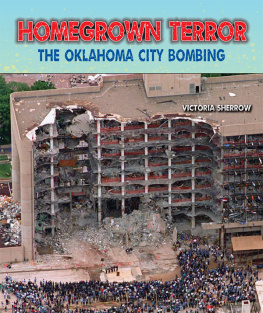There are, as a result of the investigation and the presentation of the evidence in this case, a number of questions unanswered. It would be disappointing to me if the law enforcement agencies of the United States government have quit looking for answers in this Oklahoma bombing tragedy.
R ICHARD P. M ATSCH , PRESIDING JUDGE IN THE M C V EIGH AND N ICHOLS TRIALS
Im thoroughly convinced were going to have another domestic terrorist act in this country that is going to be beyond our imagination, beyond Oklahoma City.
K ERRY N OBLE, REFORMED MILITANT FROM THE RADICAL FAR RIGHT
W hy read about the Oklahoma City bombing, after so long? Many Americans think of the events of April 19, 1995, as a jarring interruption to an otherwise peaceful decade, a disturbing story whose shockwaves, mercifully, did not resonate for long. They remember it as the work of two disaffected army veterans from the heartland, who pulled together their deadly payload from ordinary farm fertilizer and delivered it in a Ryder truck to a city unprepared for such destruction.
But that is only part of what happened. While the guilt of the two principal defendants, Timothy McVeigh and Terry Nichols, was established beyond doubt at trial, many other things were sidestepped: the dysfunction within the countrys law enforcement agencies, which missed opportunities to penetrate the radical right and prevent the bombing; the question of who inspired the bombing and who else might have been involved; and evidence contradicting the governments repeated insistence that investigators had everything under control and that, ultimately, the system worked.
This litany may sound familiar from the controversies following the September 11 attacks, and it should. Many of the same institutional problems and misplaced political priorities that blinded the country to the threat from al-Qaeda in 2001 were responsible, six years earlier, for a refusal to take the threat of paramilitary violence from the radical right with the requisite seriousness. Attorney General John Ashcroft was more interested in public decency and outlawing medical marijuana than in reports of suspicious foreigners enrolling in flight schools; likewise, his predecessor, Janet Reno, pushed her Justice Department to crack down on deadbeat dads while playing down reports of radicals advocating bombings, assassinations, and shootings.
One problem, as in 2001, was a failure by law enforcement agencies to see past their own rivalries. Another was an assumption that the threats were just empty rhetoric from the mouths of social outcasts incapable of holding down a regular job, much less doing real damage.
The lessons of Oklahoma City have never been properly articulated. Yet they are important, because the conditions that led to the deaths of 168 people at the Murrah Building in downtown Oklahoma City, and the shattering of thousands of other lives through grief or injury, could easily be replicated. McVeigh was a traumatized veteran of the first Gulf War, who felt validated by his experience of warfare but returned home to disillusion, recession, and a bleak future of dead-end jobs. He found solace in his fascination with fire-arms and survivalism, bounced around the country on the gun-show circuit, and shared the company of angry young men like himself. Sometimes they blamed blacks and Jews; other times they directed their anger at the federal authorities. When a government siege at the Branch Davidian religious compound in Waco, Texas, went horribly awry in early 1993, McVeigh and his cohorts decided it was time to stop complaining and take action, because a government capable of deploying tanks against civilians and watching children burn to death could not be counted on to leave anyone in peace.
No two moments in history are exactly alike, of course, but it is not difficult to see how new McVeighs could emerge from the wars in Iraq and Afghanistan, the lingering devastation of the 2008 economic meltdown, and the anti-establishment rage embodied by everyone from the Tea Party and Occupy Wall Street to the violent racists threatening to put a bullet in the brain of Americas first black president. The government is no better at tracking political extremism or mental instability in the armed forces than it was in the early 1990s. Too many dangerous people have a measure of military training, as a much-discussed Department of Homeland Security report found in 2009; too many have access to a fearsome array of firearms and explosives.
The choices made by McVeigh and his fellow conspirators were abhorrent, but their story is still quintessentially American, a story of hopes raised and dashed against a backdrop of violence, political agitation, and individual restlessness. The personality susceptible to the dream of limitless freedom, Jonathan Franzen wrote in his novel Freedom, is a personality also prone, should the dream ever sour, to misanthropy and rage. McVeigh and his friends were just such personalities, with an added layer of idealistic fervor to spur them beyond their resentments to deadly action. They saw themselves in the same mold as the eighteenth-century revolutionaries who fought off British rule. They called themselves patriots, seeing little or no contradiction between the violence they advocated and the many wars waged by their government in the name of honor, freedom, and country.
America has always had a war culture, the social historian Billy Gibson wrote in Warrior Dreams, a remarkable study of Americas paramilitary frenzy in the wake of Vietnam. This culture has two fundamental stories, one celebrating the individual gunman who acts on his own (or in loose concert with other men); the other portraying the good soldier who belongs to an official military or police unit and serves as a representative defender of national honor. Intriguingly, McVeigh fit both categoriesfirst as the exemplary infantryman who won medals in the Gulf, then as the underground warrior convincing himself that a bold statement in Oklahoma City could trigger a general uprising. In both incarnations, he was indeed the good soldier, confident of his mission and clear about his cause.
Many people were shocked when McVeigh dismissed the children who died in the Murrah Buildings day-care center as collateral damage, the necessary price of warfare. But these words were military terminology he had learned in the army. McVeigh was extraordinarily callous in his choice of target, and he made a crucial strategic error in killing so many innocent people, because his act provoked only revulsion and snuffed out the revolution he hoped it would start. Still, he defended the military integrity of his actions to the end.
In many ways, this is a story of failure. The radical far right wanted to wage a war of leaderless resistance, in which hardened fighters would form paramilitary cells and make command decisions that would be shared on a need-to-know basis. But these were not people temperamentally disposed to waging a subtle war of attrition, and they lapsed easily into indiscipline and poor judgment. Everything about the Oklahoma plot screamed overkill, where a more carefully targeted attack might have been more effective. Several people in the far-right believed McVeigh would hit the federal courthouse next to the Murrah Building as part of a nationwide assault on the judiciary. Others thought he would detonate the bomb at night. But McVeigh had his own ideas.
The governments law enforcement agencies also failedby taking their eye off the radical right at a time when advocacy groups were sounding the alarm, and by shying away when presented with evidence of actual criminal behavior. The FBI and the ATF spent a lot of energy after the bombing blaming each other for the warning signs they missed, and for information they failed to share about known radicals congregating to plot a revolutionary war. But both agencies were at fault.

![Waring Todd Oklahoma City: [what the investogation missed-- and why it still matters]](/uploads/posts/book/242598/thumbs/waring-todd-oklahoma-city-what-the.jpg)
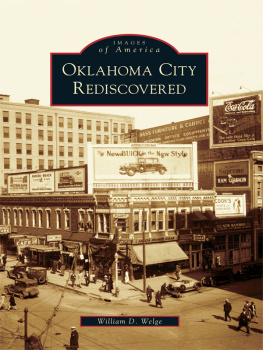

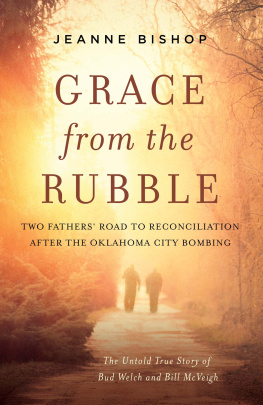
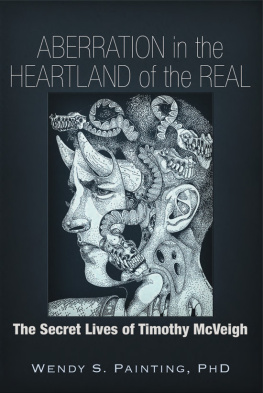
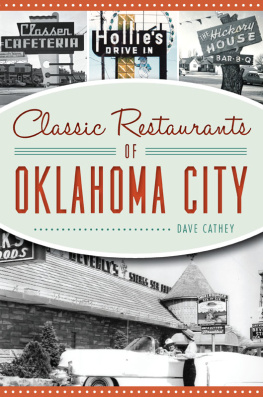
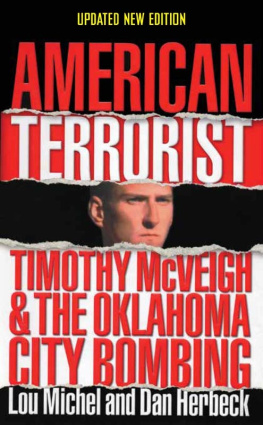
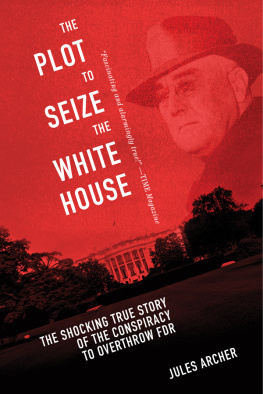
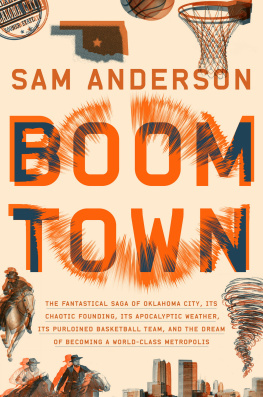
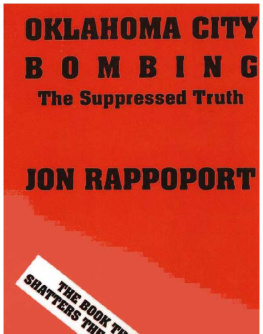
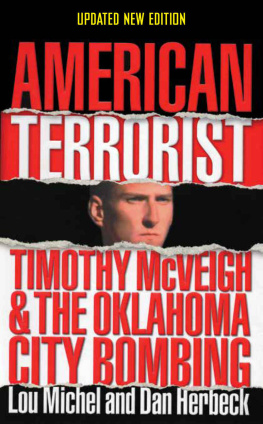
![Gumbel Andrew - Oklahoma City : [what the investogation missed-- and why it still matters]](/uploads/posts/book/98695/thumbs/gumbel-andrew-oklahoma-city-what-the.jpg)
